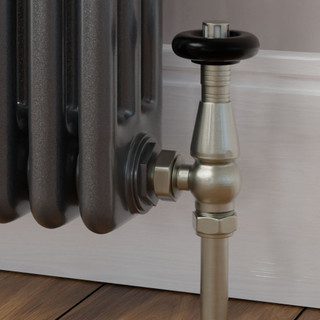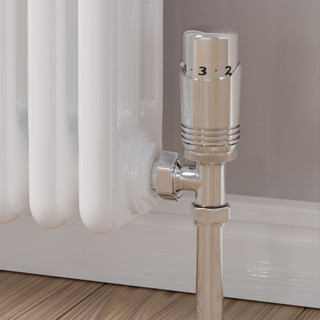Measuring Up: Selecting The Right Size Radiator For Your Room
Posted by Radiators 4u on 19th Dec 2022

When buying new radiators for your home, there is no one-size-fits-all solution. Every home and every room will have its unique set of characteristics that must be considered to ensure you fit the right radiator in the right location. And it's not just a question of functionality. When you invest in new radiators, you'll want a solution that efficiently heats your home, looks great and enhances your living space.
There are so many questions that you need to ask yourself before buying new radiators. It might all sound a little overwhelming. However, with more than 20 years of experience supplying radiators and accessories online, the experts at Radiators 4u are always on hand to help you answer these questions with confidence.
What Size Radiator Do I Need?

Before understanding what size radiator you need in terms of physical size, you’ll need to get to grips with the concept of the British Thermal Unit (BTU). The BTU is a standard measurement used to describe a radiator’s heat output. One BTU is the amount of energy it takes to heat one pound of water by one degree Fahrenheit at sea level. The higher the BTU value, the higher the radiator’s heat output.
To efficiently heat a room, you'll need to match your radiators' BTU output to the room's specifications. These specifications will include the room's length, width, and height, along with other factors such as room use, window type, and the exposure of your room. For example, a room with an external wall in a house in the Scottish Highlands will require a higher BTU than a less exposed building in the South of England.
BTU Calculator
You don't need to be a heating engineer to calculate your room's required BTU. Radiators 4u has created a helpful BTU Calculator which allows you to calculate the recommended ranges of BTU needed for each room in your house.
The BTU calculator then automatically links to a selection of radiators to suit your room’s requirements.
BTU T50 vs. BTU T60
You'll notice all the radiators on the Radiators 4u website feature BTU T50 and T60 ratings. These standards are commonly referred to as Delta T50℃ and Delta T60℃ and can also be written as ΔT. Don't let these two ratings confuse you.
These are just two different industry standards used to measure the heat output of a radiator based on the difference between the temperature of water in the radiator and the temperature of the room in which it is located.
Radiators 4u's BTU Calculator uses the T50 standard to heat a room efficiently and effectively. You must use the same Delta T standard when comparing radiators to ensure an accurate comparison.
Radiators for Larger Rooms

Larger rooms, such as living rooms or commercial spaces, may require multiple radiators to be positioned throughout the room. In such cases, you can divide the necessary BTU between the number of radiators you want to install.
Send your room's BTU calculation to our expert team if you need more advice regarding how many radiators you need and where they should be located. We'll get right back to you with advice based on the latest heating industry best practices.
A Question of Taste and Style

Once you understand what BTU rating you need to heat each room, you can start looking at all available options. These will include a range of materials, styles and finishes.
Radiators 4u has a complete range of cast iron radiators, aluminium radiators, designer radiators, electric radiators, and valves and accessories.
Your decision will ultimately be based on several factors, including personal tastes, budget, and room characteristics. For example, you might want to showcase your room's radiators as a design feature or hide them away from view. A smaller room, a hallway or a conservatory might benefit from a vertical radiator instead of the traditional horizontal units. You may also benefit in narrow spaces by choosing one of our high output, narrow cast iron radiators.
If you are looking for a little inspiration, check out this blog highlighting how different radiator styles suit various period property designs.
Customer Favourites:










